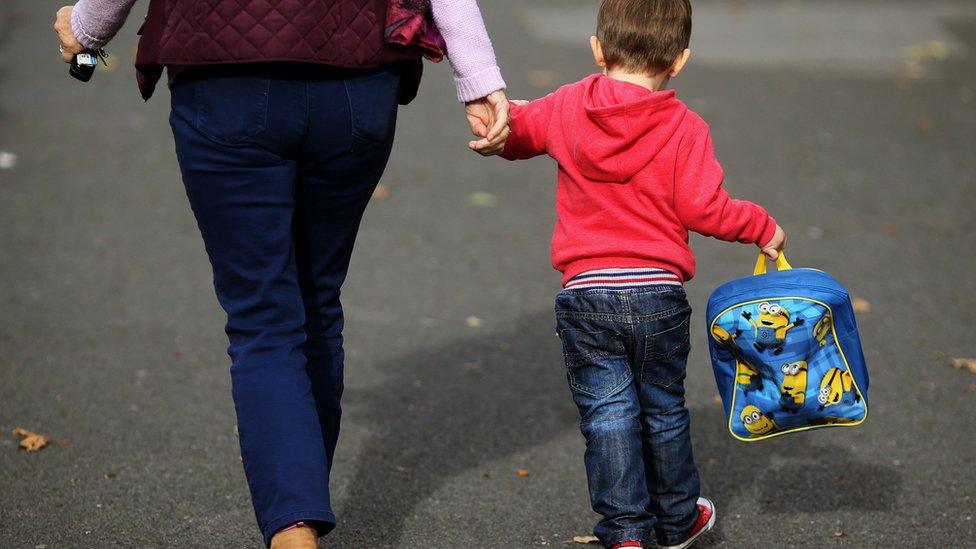Universal Credit: 'No snazzy meals and no posh shops for me'
- Published
Universal Credit: 'No snazzy meals and no posh shops for me'
"It's like giving somebody hope that they can manage... and then snatching the rug from underneath them."
Tracey Rheged-Armer says she does not go to "the posh shops" or eat "snazzy meals". Hers is instead a life of yellow-stickered, reduced price food, charity shop clothing and constantly worrying about money.
The 57-year-old care worker is one of more than 5.8 million people claiming Universal Credit who will see her temporary £20 weekly benefit boost - put in place at the start of the Covid-19 pandemic - removed from 6 October.
Tracey, from Carnforth in Lancashire, lives with her retired postman husband and a growing amount of debt.
The couple bring in about £1,300 a month - a combination of Tracey's wages, her husband's pension and benefits - and, after paying bills, rent and other essentials, are left with about £30 spare.
In August, her fuel bills rocketed after her supplier put up its prices, and she now has to deal with a debt management company.
Tracey says that since she has always worked, she never expected to be in this situation.
Losing the extra £20 a week, which "goes on petrol", will have a devastating effect on her life, she says.
"I'll have to figure a way of putting petrol in my car, because I need [it]," she tells BBC North West Tonight.
"I can't get to work without it, because I work awkward shifts and there's no bus services back when I finish, so that £20 keeps me in work."
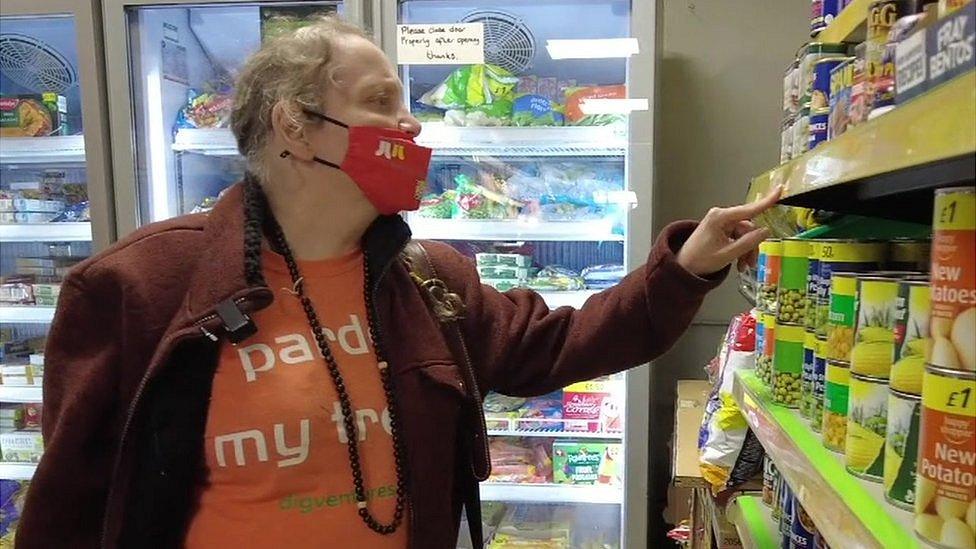
Tracey says she already has to plan shopping trips carefully
Tracey says she has had to become adept at watching the pennies to make sure the money she earns and the benefits she receives goes as far as possible.
"Food is a massive part of my budget and I really have to be clever on the way I buy," she explains.
"It's a set task of planning it before, not just walking down to the shop and thinking 'I'll have this and I'll have that'."
She says food shopping is "very stressful, especially when I see other people with trollies that are brimming over the top and throwing things in without having to think about them".
"I've got a way of shopping. I tend to go late at night, when there's yellow stickers on, or when I hear so-and-so's got a sale," she says.
Tracey, who has diabetes, says because it is just her and and her husband, she cannot "bulk buy and get the big offers, [because] it doesn't get eaten".
She worries because she is "supposed to have low-fat, low-carbohydrate, high-quality food [but] can't always buy it".
"It's going out frequently to the cheapest shop in the area and not buying the snazzy meals. It's the cheapest potatoes, the everyday rice pudding."
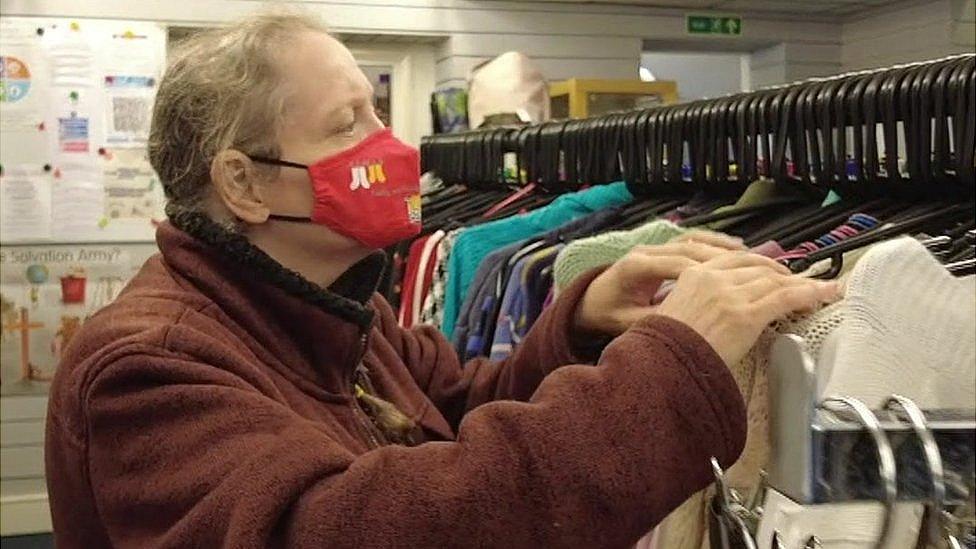
Tracey says her clothes and furniture are all bought from charity shops
Away from the supermarket, she makes weekly trips to the town's charity shops as a way of "socialising out of the house", buying things she and her husband need, and maybe "giving myself a treat".
"I've never been to the Trafford Centre [shopping mall]," she declares.
"I've never been able to go in any of the posh shops or Next or even the local Brand New, because that's out of my price range.
"It takes so much money out of the budget, it's unrealistic."
Tracey says that while she realises the £20 increase to Universal Credit was only supposed to be temporary, the plan to remove it is "disgusting".
"It's like giving somebody hope that they can manage, they can pay things off, they can move forward, and then snatching the rug from underneath them," she says.
"It is absolutely appalling."
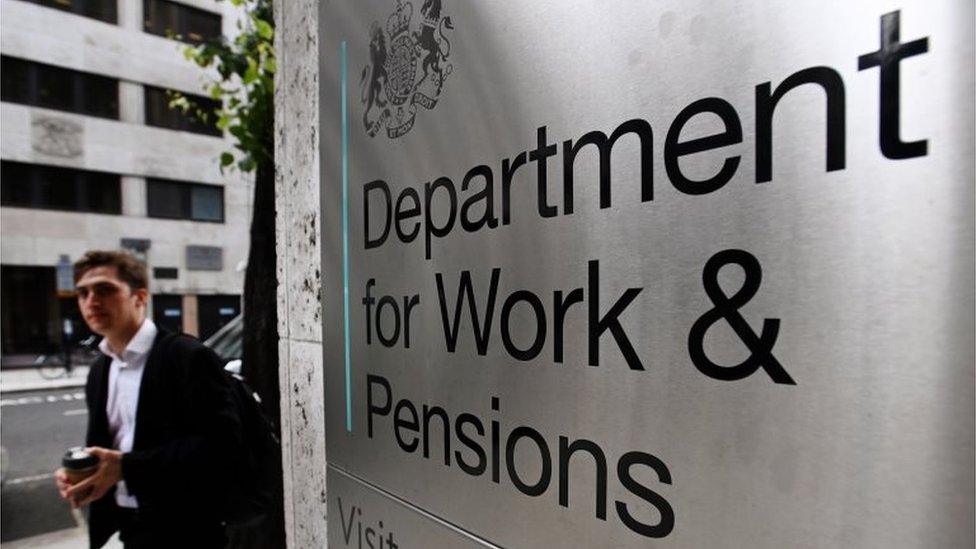
The work and pensions secretary said the £20 uplift would only mean "two hours' extra work every week" for claimants
Even before the uplift was added, she says, she had not been impressed with how the benefit was calculated.
"Universal Credit keeps you down at the bottom," she says.
"My employer could offer me all the hours under the sun, but Universal Credit takes 67p out of every pound if I get added money.
"Who is going to work for 33p?
"It's one thing to clap us, but give us a wage we can live on, so we don't have to claim Universal Credit, so we're not putting a strain on the government, so that we have a bit of honour and dignity.
"We're putting our lives and the lives of our families at risk and we're getting paid peanuts."
The Department for Work and Pensions said the government had "always been clear that the uplift to Universal Credit was temporary".
"It was designed to help claimants through the economic shock and financial disruption of the toughest stages of the pandemic, and it has done so," a spokesman said.
He added that the benefit would "continue to provide vital support for those both in and out of work" and the focus would now be on "supporting people back into work and supporting those already employed to progress and earn more".
Business Secretary Kwasi Kwarteng has previously said many households could face a "very difficult winter", with fuel prices surging and the £20 uplift ending.
Work and Pensions Secretary Therese Coffey said she backed the removal of the extra payment since the £20 uplift would only mean "two hours' extra work every week" for claimants.
She added that the government would try to help people "perhaps secure those extra hours".
Tracey says she is "worried going into the winter", but is sure she will find a way to survive.
"I'm stubborn and I'll get through it, one way or another," she says.
"I've been there before but I didn't expect to be still there now."

Why not follow BBC North West on Facebook, external, Twitter, external and Instagram, external? You can also send story ideas to northwest.newsonline@bbc.co.uk, external
Related topics
- Published13 May 2024

- Published21 September 2021
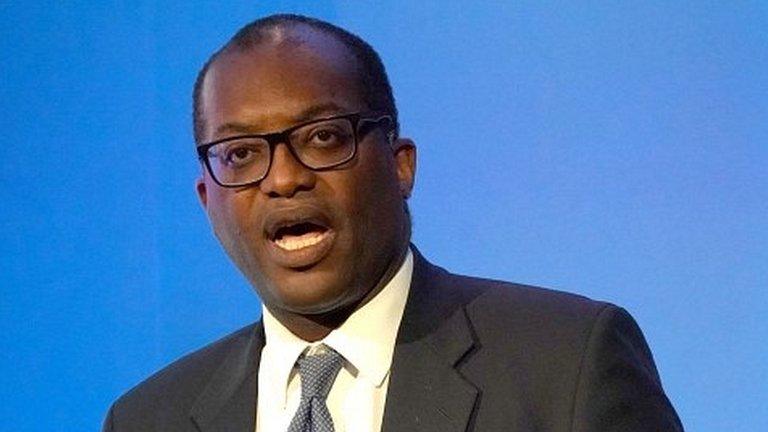
- Published30 September 2021
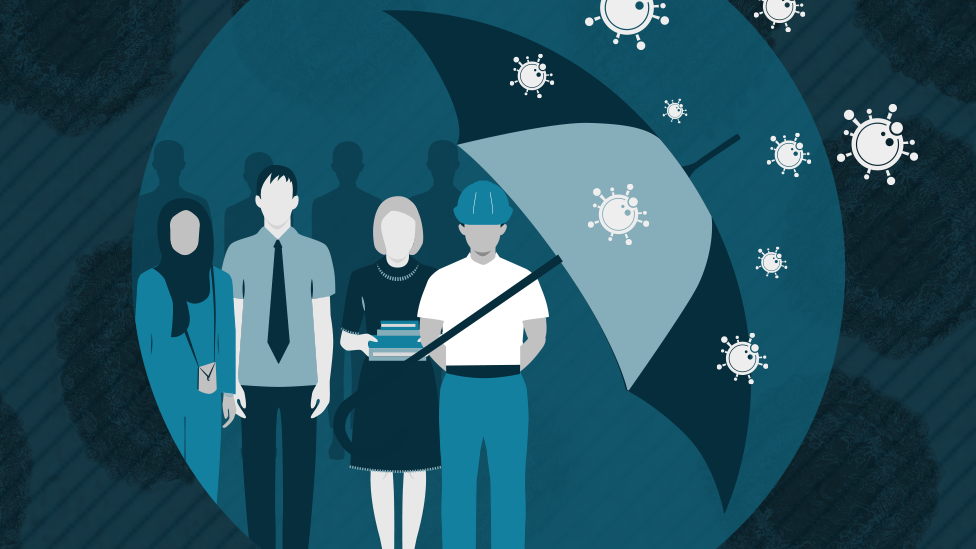
- Published18 October 2018
